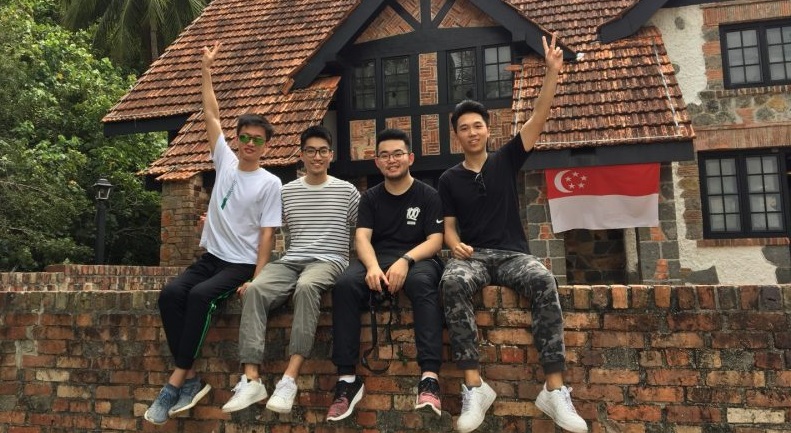
Gangfeng is currently pursuing his Master of Science degree in Integrated Circuit Design at NTU-TUM, which is administered by Technical University of Munich (TUM) Asia. Having heard about the DAAD scholarship from his seniors, we speak to him to find out more about his experience with applying and receiving the scholarships, which are open to all TUM Asia students.
What inspired you to study your Master’s degree with TUM Asia?
I enrolled with the joint NTU-TUM programme in 2018, where I was able to study at TUM Asia; TUM’s campus in Singapore, as well as NTU’s campus. I was attracted to this Master’s degree due to its comprehensive course structure and the valuable opportunity to pursue an internship. These were important factors to me when considering a Master’s degree to study.
How did you come to hear about the TUM Asia-DAAD scholarships?
Way before I started studying at TUM Asia, I had heard about this scholarship from my seniors. He was one of the previous recipients and strongly recommended me to apply for the DAAD scholarship while studying at TUM Asia as students would be accessed while they were pursuing their studies.
How was the scholarship application process like for you?
The process was very smooth. TUM Asia provided us very clear guidelines and timely information. All I had to do was to work hard and prepare for the application. The application documents included an application form, a motivation letter, some documents to show your background and academic performance such as a Curriculum Vitae (CV) and transcript. They would also ask you for some supporting evidences such as proof of your finances and proof of the achievements mentioned in your CV. It took me at least three or four days to prepare these documents and 90% of the time was spent on the motivation letter.
“In my motivation letter, I found it helpful to share my mid or long-term plans and the progress that I have made. I think that growth and what steps you take to achieve it is a crucial attribute that the scholarship committee would be concerned about. It also equips you as a person to push further. ”

How has receiving the DAAD scholarship impact you?
I am very thankful that I could receive this DAAD scholarship. It helped to relieve my family’s burden and allowed me to focus on my studies. With the financial support, I was able to use it to sign up for some online courses and purchase experimental hardware that allowed me to further explore my academic interests.
Are there any qualities that would enable students to have a better chance at receiving this scholarship?
I would suggest that all students should always anticipate and be prepared, not only on the application itself, but also in their studies and in their lives. It is important to think about what you want to achieve in your future studies, work and life. Write down your mid-term and long-term plans and prepare for them! Do not wait until a chance suddenly appears.
In my motivation letter, I found it helpful to share my mid or long-term plans and the progress that I have made. I think that growth and what steps you take to achieve it is a crucial attribute that the scholarship committee would be concerned about. It also equips you as a person to push further.
Do you have any suggestions to improve the DAAD scholarships for future students?
I think it is already very good. The only idea that comes to mind is that students might be interested in the amount and quota of the DAAD scholarships. It would help clarify their doubts if TUM Asia could provide more information on these areas.
Now that you are coming towards the end of your studies, how has the experience been so far?
I recently completed my Master thesis and final presentation. March is also the last month of my internship! These few months have been exciting due to my master thesis and internship assignment at Intel. My topic is about establishing an integrated power analysis flow for System-on-Chip, which targets to improve the efficiency and accuracy of analysing power issues.
In the beginning, it was a big challenge for me because I had little knowledge and skills on the multiple tools I needed to master and develop. Thankfully, with the encouragement and patient guidance from my manager and colleagues, I gradually overcame the steep learning curve and was able to handle the tools to analyse the practical power problems.
What is a key takeaway that you have had while studying at TUM Asia?
There is one important lesson that I learned from my thesis supervisor at TUM, Professor Herkersdorf: be cautious and serious on your work. He always shows himself to be a great example. His attitude really influences me a lot.
Furthermore, through my nine-month master thesis and internship, I was trained on the skills as a digital circuit designer. I also had chances to learn how to cooperate with different teams in large projects, which is a valuable experience for my future work!